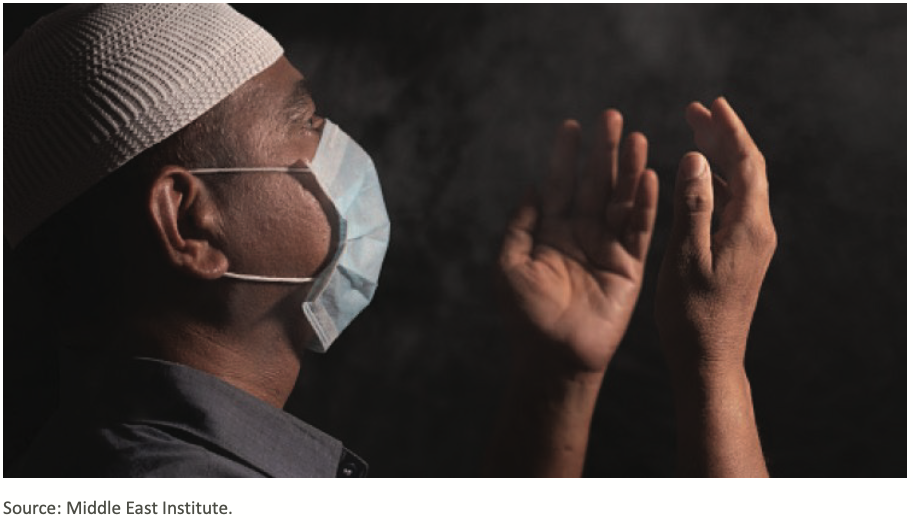
The Covid-19 pandemic has influenced social and digital media consumption in Sri Lanka and given rise to a wave of hate speech and disinformation, with Muslims being the most targeted religious group, write Senel Wanniarachchi, Prihesh Ratnayake and Harindrini Corea in a chapter of the new book, Muslims in Post-War Sri Lanka. Anti-Muslim narratives have spread in Sri Lanka since the end of the civil war against Tamil separatists in 2009, in a context of majoritarian triumphalism and under the influence of ethnonationalist groups seeing Muslims as a threat to a Sinhala Buddhist nation, and these discourses have inspired anti-Muslim riots.

The outbreak and spread of Covid-19 led to an intensification of anti-Muslim rhetoric online. Based on social media monitoring conducted from April to December 2020, the authors found that 25.7 percent of all recorded harmful speech content in this period was targeted at the Muslim community. It accounted for 84.7 percent of all content aimed at a particular ethnic/religious group. The anti-Muslim rhetoric suggested that Muslims were “spreading the virus deliberately.” The fact that Muslims opposed mandatory cremation for all victims of the disease and insisted on the burial of Muslims was denounced as an unwillingness to accept sacrifices for the common good and even led to claims that “Muslims wanted to bury COVID bodies so that they could later be used as a bio-weapon.” Muslims were depicted as putting the country and its people in danger. The subsequent revocation of the mandatory cremation policy led to a new wave of anti-Muslim polemics. Accusing Muslims of being super-spreaders of the virus has come as an additional theme following various accusations in recent years, such as assertions that Muslims have sterilized women of the majority Sinhala community through food served at Muslim-owned restaurants. It shows “the increasing normalization of anti-Muslim sentiments and rhetoric in the Sri Lankan COVID-19 pandemic context.”
(The 200-page-long book, Muslims in Post-War Sri Lanka: Repression, Resistance & Reform, published by Minor Matters, a public movement dedicated to fostering religious harmony and protecting freedom of religion and belief in Sri Lanka, can be downloaded for free from the group’s website: https://minormatters.org/en)